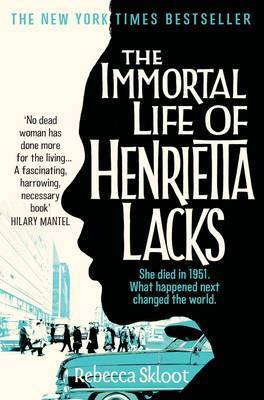Walk In or Get Out Overcoming Distrust of Medicine to Improve Outcomes
Main Article Content
Abstract
Popular culture has long provided an outlet for feelings of powerlessness toward medicine. 19th century novels Frankenstein and The Island of Dr. Moreau tapped into fears that medicine would cruelly pursue scientific knowledge at the expense of human life. Two recent films, The Immortal Life of Henrietta Lacks and Get Out, examine the anxieties and mistrust that African Americans, in particular, experience toward the medical community in the modern era.
Henrietta Lacks depicts a historical breach of ethics by researchers at Johns Hopkins University, whose work obscured the identity of Ms. Lacks’ “immortal” cell line and withheld attribution both to Ms. Lacks and her family for decades. In the film, this wrong exacerbates over time as the family struggles emotionally to understand the uses of their mother’s cells and to accept their mother’s consent was never considered necessary. Indeed, the family believed that members of their community were routinely used for experimentation without their consent: they tell journalist Rebecaa Skloot that, as children, they were warned by their parents to get off the streets at night or “Hopkins people” would snatch them up.
In Get Out, a nightmarish surgical practice occurs in which a neurosurgeon and psychiatrist lure African Americans to their home for use as receptacles for white brains in a bid for white immortality. Both of these films explore the premise that African-Americans should be afraid medicine will treat them differently from white individuals.
The ugly history of abuse toward African Americans in the name of medical research was extensively documented in 2006 by the bioethicist Harriet A. Washington. Her award winning book, Medical Apartheid: The Dark History of Medical Experimentation on Black Americans From Colonial Times to the Present, traces the extensive exploitation of African Americans that occurred well before the well-known Tuskegee Syphilis Experiments in Alabama from 1932 to 1972.[i] Ms. Washington details this shameful aspect of American medicine, which sweeps up notables such as Thomas Jefferson, who ordered the vaccination of hundreds of slaves with Jenner’s new smallpox vaccine before injecting his own white family, to the 19th century gynecologist and president of the American Medical Association, H. Marion Sims who forcibly administered morphine to enslaved African American women after, but not prior to, painful surgical procedures.[ii] Before Ms. Washington’s book, the history of research and clinical abuses of African Americans was unapologetically ignored. But this is not dead history. Ms. Washington makes the compelling argument that, just as with the Lacks family, the emotional damage of this history has created dangerous consequences for the African American communities, which are still pervasive today.
Distrust and suspicion toward medicine and clinicians may be contributing to devastating health disparities within the African American community. The Centers for Disease Control and Prevention report that from 2010 to 2014 African Americans made up 45% of the total number of Americans diagnosed with HIV with a death rate higher than any other group.[iii] African Americans have higher rates of sexually transmitted diseases and account for 36% of Tuberculosis cases.[iv] Although life expectancy gaps between African Americans and whites are narrowing, African Americans die at higher rates than whites from most causes, including AIDS, heart disease, and cancer.[v] Can these health disparities be linked, in part, to a feeling of distrust African Americans have toward medicine based on historical abuses?
A 2006 study by clinicians at the University of Illinois at Chicago School of Public Health concluded that there exist significant differences between African Americans and whites in their distrust of the motives of the medical profession, and many of these feelings of distrust can be traced to the historical treatment of African Americans. One participant in the study reported that her knowledge of the Tuskegee experiments led her to believe that “maybe sometimes you go instead of getting treated they just want to see what it’s going to do to you and they’ll try this and try that and they may give you a sugar pill.”[vi] The authors noted their “disturbing” and “disconcerting” findings that expectations of racism and experimentalism in routine medical care were reported in all focus groups and led many of the participants to distrust their physicians and decide not to seek care.
Medicine has a long way to go to rebuild trust with the African American community. Additionally, larger studies should build on the Chicago study to understand the feelings of distrust the African American community may have so that they may be directly addressed. This should represent a collaborative effort to acknowledge past mistakes and current distrust, while pledging to improve open communication. The fears of experimentation that lead patients to want to get out must be acknowledged and dealt with so that all patients feel more confident when they walk-in.
[i] U.S. Department of Health and Human Services, Centers for Disease Control and Prevention, U.S. Public Health Service Syphilis Study at Tuskegee, Last updated December 8, 2016, https://www.cdc.gov/tuskegee/timeline.htm#
[ii] Washington, p. 65.
[iii] U.S. Department of Health and Human Services, Centers for Disease Control and Prevention, “ Disparities in HIV/AIDS, Viral Hepatitis, STDs and TB,” Last updated June 2013, https://www.cdc.gov/nchhstp/healthdisparities/africanamericans.html
[iv] U.S. Department of Health and Human Services, Centers for Disease Control and Prevention, “Tuberculosis in Blacks,” Last updated October 26, 2016, https://www.cdc.gov/tb/publications/factsheets/specpop/resources_tb_blacks.htm
[v] Washington, pp. 4-5.
[vi] Elizabeth A. Jacobs, et al., “Understanding African Americans’ Views of the Trustworthiness of Physicians,” J Gen Inter Med 2006; 21:642-647, p.645.

